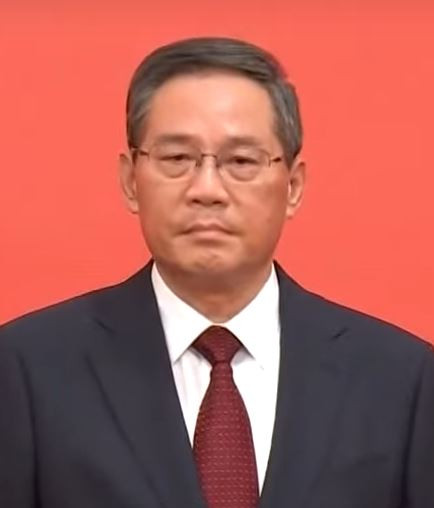On Thursday, Chinese Premier Li Qiang expressed his commitment to opening up and reforming the world's second-largest economy, aiming to attract foreign investors despite ongoing trade and geopolitical conflicts with Western nations.
Li's keynote speech, given at a business and political summit in Hainan province, comes as Beijing woos foreign companies to bolster its economy, which has been battered by years of pandemic restrictions. However, strained relations with the U.S. and its allies over China's close ties with Russia, aggressive stance toward Taiwan, and concerns about its use of sensitive technologies, cast a shadow over a swift recovery.
"No matter what changes take place in the world, we will always adhere to reform and opening up...We will introduce a series of new measures in expanding market access and optimizing the business environment," Li said during the annual Boao Forum, having taken office earlier this month.
"A confident, open, and willing to share China must be a huge force for world prosperity and stability," he added.
Li, who shared the panel with the prime ministers of Malaysia, Singapore, and Spain, reiterated his commitment to opening up China in a recent summit in Beijing attended by foreign executives, including Apple Inc's Tim Cook. In his first speech after assuming office, Li vowed to ease regulatory crackdowns and support private enterprises.
As a result, Chinese e-commerce giant Alibaba Group announced plans this week to break up its empire and explore several fundraising or listing options.
However, years of strict border controls and a series of pandemic-related lockdowns have diminished business confidence in China, particularly among foreign companies, as evidenced by sentiment surveys.
China abruptly lifted its COVID restrictions in December, and Li stated on Thursday that signs of recovery are beginning to emerge.
"Judging from the situation in March, it's better than in January and February. In particular, major economic indicators such as consumption and investment continue to improve, while employment and prices are generally stable," Li said.
China has set a modest target for gross domestic product growth of around 5% this year, after significantly underperforming its 2022 goal. This is lower than what the International Monetary Fund and some private forecasters believe China can achieve.
Denis Depoux, global managing director at consultancy Roland Berger, noted the resolve in Li's message: "I see a lot more determination in conveying the message that China is indeed back open for business."
However, some cautionary notes were sounded. In a veiled reference to the United States, which is collaborating with its allies to limit China's access to advanced technologies such as microchips, Li stated that Beijing opposes trade protectionism and decoupling.
Spanish Prime Minister Pedro Sanchez, who spoke on the same panel, warned that protectionism would signal "a return to the past" and harm relations between China and Europe. However, shortly after his speech, the European Commission revealed it is considering measures to control outbound investment to prevent certain sensitive technologies from being acquired by rivals like China.
Li's efforts to win over businesses coincide with heightened rhetoric between China and the United States, its largest export market. Taiwan, a democratically governed island that China claims as its territory, has been a primary point of contention.
In the latest escalation, Taiwan's President Tsai Ing-wen arrived in New York on Wednesday for the first of two U.S. stopovers, which Beijing has denounced as provocative.
In his speech, Li emphasized that "chaos and conflicts" must not occur in Asia and that China would serve as an "anchor" for global peace.






